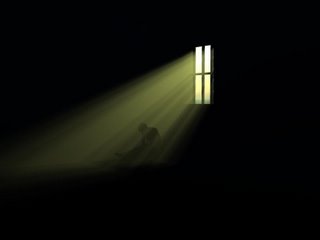Confession:
I like to “step outside of things” and take a look. I always have.
I have this odd duck ability to be able to “step outside of myself” and observe what’s going on in my mind and soul. Detached evaluation, I guess, is one way to describe it. There’s nothing mystical about this, it is just a technique I learned very early in life–a way of being able to stay calm, evaluate what is happening, make assessments and decisions, and to observe what is happening without experiencing or feeling.
The ability to do so has been a mind-saver; a protector even. I’ve even been known to refer to myself in third person. (Ok, so that is a bit strange). I can be furiously studying/praying/writing something that is deeply relevant on a personal level, and I’ll inevitably start using referring to myself as “she” and “her”.
I know, sounds crazy. Stay with me here, though, and I think you’ll see the relevance and application in a second.
I can do the same thing with God. I often do the same thing with God. I love studying about God, I really do. I find theology and philosophical thought about God to be fascinating. I’m not that good at apologetics–mainly because I can get wound up in cynicism if I go too far afield in that area–but I am starting to get more interested in history–both church history and history that points to apologetics. I LIKE to study. I LOVE to study. I can lose whole hours study exploring different ideas and thoughts and meanings/interpretations and implications. I like studying and learning about anything–current events, technology, new inventions, biographical information, medical advances–but I particularly like studying about God.
ABOUT God. Outside of Him. Apart from Him. Like a geologist would study a rock.
I came across two quotes this week that reminded me that I have to be careful to avoid this; no, that’s not strong enough. I have to battle and fight to avoid this tendency.
The first is from B.B Warfield. I don’t know much about good, ol’ B.B., except that he was a professor of theology at Princeton. And a stern-looking fellow. But I like these words from him:
“Why should you turn from God when you turn to your books, or feel that you must turn from your books when you turn to God.”
Indeed. Why should I? Why should you? In a sense, sometimes (not always, but more times than ought be the case) when I turn to my books to “study about” and “look at” God, there is a sense in which I turn from God.
The scientist rarely invites his subject to commiserate with him in his observations and analysis.
Which is fine, except for this: I am no scientist.
I am a follower of Christ. I need Him to commiserate with me in my study.
Study is not wrong. It is good and right. But what’s the use of studying about God, if that study does nothing….if that study does nothing to engage my soul as well as my mind; if it does not spur me on to repentance or obedience; or cause in me a greater desire to care or share hope, or increase my awe and longing for the things not of this world; then what’s the point? Is it not, in some sense, just putting more facts into the endless file cabinet that is my brain–the part of me that contains information about painters and generals and chemistry formulas and pop culture references and the names of authors of children’s books and geography facts and even random stuff about so-called sports like curling that only serve to help me beat people when I play Trivia Crack on my iPhone at night when I cannot sleep?
Which brings me to the second quote I came across this week–one I’ve ready many times, from (my uncle) C.S. Lewis, in his “Mediation in a Toolshed”:
I was standing today in the dark toolshed. The sun was shining outside and through the crack at the top of the door there came a sunbeam. From where I stood that beam of light, with the specks of dust floating in it, was the most striking thing in the place. Everything else was almost pitch-black. … Then I moved, so that the beam fell on my eyes. Instantly the whole previous picture vanished. I saw no toolshed, and (above all) no beam. Instead I saw, framed in the irregular cranny at the top of the door, green leaves moving on the branches of a tree outside and beyond that, 90 odd million miles away, the sun. Looking along the beam, and looking at the beam are very different experiences.
And so, they are.
I can look at the beam all day long, without looking along it. I can dissect it, analyze it, even write about it. But I miss much, in the process. I miss what the beam illuminates. I miss the marrow of the beam.
The same is true when I choose to look at God instead of along my God. I can strive so hard to learn all I can about Him, and yet miss the very essence of what it means to see, like Thomas, and proclaim “My Lord and my God.”

